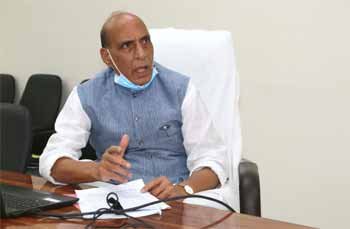– V.Srinivas IAS –
– G 20 A Decade in Multilateralism – Part 8 –
The Hangzhou Summit 2016 was convened at a time when the global economic recovery was progressing well, resilience had improved in several economies and new sources of growth were emerging. The downside risks were potential volatility in the financial markets, fluctuation in commodity prices, sluggish trade and investment and employment growth in some countries. There was a profound transformation in the configuration of the global economic landscape with the rise of China and the dynamics for growth. It was envisaged that joint action by the G20 would result in shared prosperity and better well-being of the world.
The Hangzhou consensus of the Leaders of the G20 was based on a vision to strengthen the G20’s growth agenda; forging synergy in fiscal, monetary and structural policies; promoting global trade through greater openness and inclusive growth. The global economic recovery was progressing and new sources of growth were emerging. There were profound shifts in the configuration of the global economic landscape.
The G20 sought to strengthen policy coordination by well designed monetary, fiscal and structural policies to achieve the goal of strong, sustained, balanced and inclusive growth. The growth strategy was to strive to reduce excessive imbalances and promote greater inclusiveness. That said, the G20 felt that excess volatility and disorderly movements in exchange rates can have adverse implications for economic and financial stability. A new path for growth was to be charted with the G20 2016 Innovation Action Plan which sought to pursue pro-innovation policies, investments in science, technology and innovation (STI), support skills training for STI, and mobility of human resources. They also delivered the G20 New Industrial Revolution Action Plan to strengthen SME’s and address workforce skill challenges. Further the G20 Digital Economy Development Cooperation Initiative was formulated to unleash the potential of digital economy. An Enhanced Structural Reforms Agenda was adopted consistent with country specific choices.
The G20 adopted the Agenda towards a more stable and resilient International Financial Architecture. The G20 welcomed the entry into effect of the 2010 IMF Quota and Governance reform and sought early completion of the 15th Quota review to reflect the shares of dynamic economies in line with their relative positions in the world economy. Paris Club the principal international forum for restructuring official bilateral debt was expanded to include Korea, Brazil and China. The IMF included the renminbi into the Special Drawing Rights (SDR) currency basket on October 1, 2016. The G20 remained committed to a resilient financial system through the Financial Stability Board.
The Hangzhou Communique laid emphasis on robust international trade and investment as also inclusive and interconnected development. The G20 Strategy for Global Trade Growth sought lower trade costs, greater policy coherence, boosting trade in services and promote e-commerce development. The Hangzhou Comprehensive Accountability Report on G20 Development Commitments reflected the progress made over the period 2014-16 towards Sustainable Development Goals. The G20 Labor Ministers, G20 Agriculture Ministers meetings were also included in the Developmental Agenda.
Further the G20 took note of Brexit, and the uncertainty it brought to the global economy. The G20 felt its members were well positioned to address the potential economic and financial consequences of Brexit. The G20 reiterated its support for Climate Change and supported the Green Climate Fund. The Hangzhou summit reaffirmed the G20’s founding spirit to bring together the major economies on an equal footing to catalyze action. The G20 had expanded into several new areas in its developmental agenda.
There were several significant global challenges affecting the world economy. The referendum on UK’s membership of the EU added to the uncertainty in the global economy. There was massive displacement of people worldwide, unprecedented since the Second World War. The G20 agreed to examine migration issues in 2017. Further Antimicrobial resistance (AMR) posed a serious threat to public health, growth and economic stability. The G20 identified the need to discuss AMR and other public health related issues in the next Summit meeting.
The road from Hangzhou in 2016 led to Hamburg in 2017 and to Argentina in 2018.
G 20 A decade in multilateralism
Click Here To Read Full Series
G20- A decade in multilateralism – A lecture by V.Srinivas IAS
Click Here To watch or listen full lecture
V.Srinivas IAS
Senior Bureaucrats and Author
V.Srinivas is an IAS officer of 1989 batch, currently posted as Chairman Board of Revenue for Rajasthan and Chairman Rajasthan Tax Board.
He has served as Advisor to Executive Director (India) in the IMF, Private Secretary to Finance Minister & External Affairs Minister Government of India and Planning & Finance Secretary Rajasthan.
Disclaimer : The views expressed by the author in this feature are entirely his own and do not necessarily reflect the views of INVC NEWS.

















